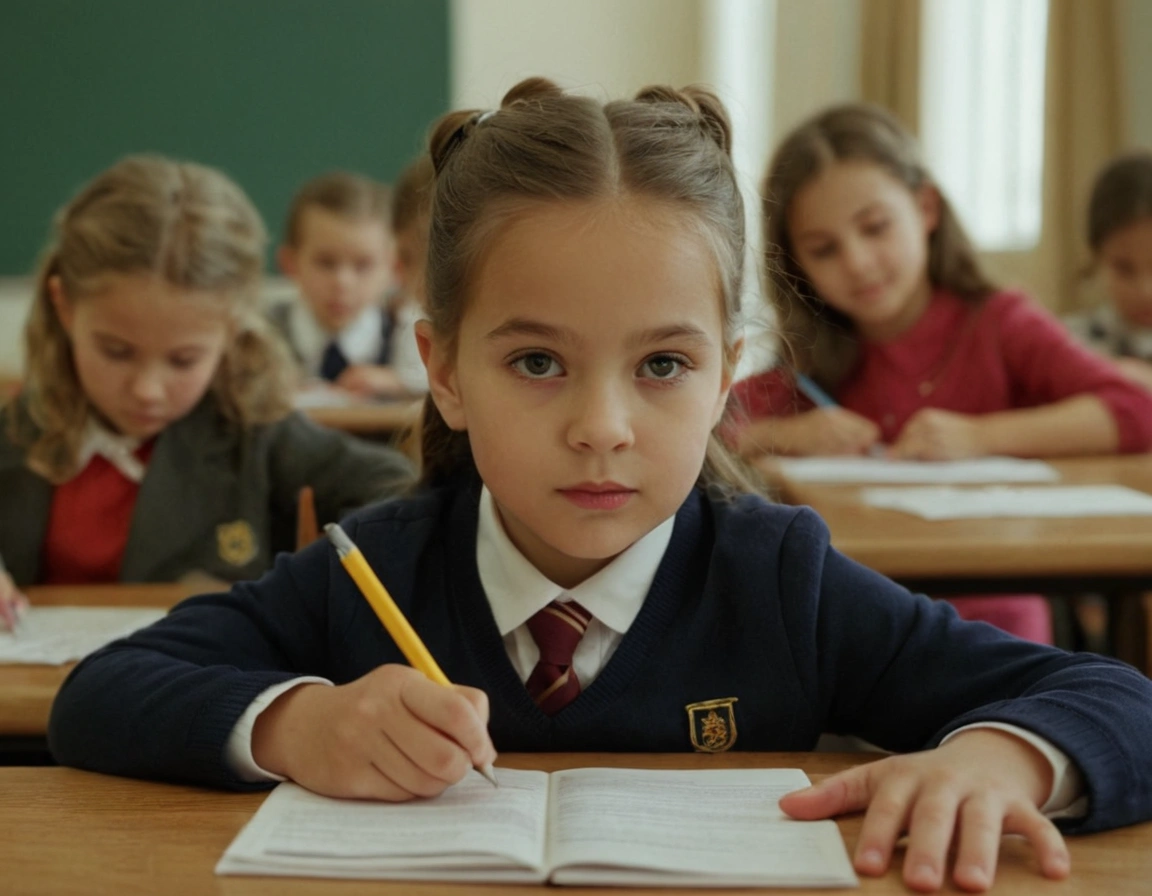Welcome! For parents, educators, and administrators, understanding what makes a strong elementary curriculum is essential for choosing the right private school or for enhancing educational standards. A well-designed curriculum goes beyond academic excellence—it supports emotional, social, and intellectual growth while adapting to each child’s unique needs. Private schools often have the flexibility to create comprehensive curricula that combine foundational skills with innovative learning opportunities.
In this article, we’ll explore the elements that make an elementary curriculum in private schools truly effective. From building core competencies in literacy and math to fostering creativity and character development, these key components work together to create a well-rounded educational experience. Let’s dive into what makes a curriculum strong, engaging, and capable of setting students up for lifelong success.
10 Key Elements of a Strong Elementary Curriculum in Private Schools
1. Focus on Core Academic Foundations
At the heart of any strong elementary curriculum is a solid focus on core subjects: reading, writing, mathematics, and science. In private schools, these subjects are taught with an emphasis on critical thinking, comprehension, and practical application. A rigorous academic foundation ensures that students are well-prepared for higher learning and can confidently approach new subjects.
For reading and writing, a strong curriculum prioritizes phonics, vocabulary, comprehension, and creative expression. In math, it emphasizes both foundational operations and problem-solving skills. By introducing science with hands-on experiments, students develop a natural curiosity and understanding of the world around them.
2. Emphasis on Individualized Learning
Private schools often have smaller class sizes, which allows for individualized learning approaches tailored to each student’s strengths and needs. A strong curriculum includes flexibility to adapt lessons to different learning styles and paces, whether through advanced reading groups, one-on-one math support, or varied project options.
Teachers assess students regularly to understand their unique progress and adjust lessons accordingly. Individualized learning promotes confidence and engagement, allowing each child to reach their full potential while making the learning experience more enjoyable.
Essential Components of a Strong Elementary Curriculum
| Component | Description |
|---|---|
| Core Academic Foundations | Reading, writing, math, and science are prioritized |
| Individualized Learning | Tailored to students’ learning styles and progress |
| Character Development | Emphasizes empathy, respect, and responsibility |
| Creative Arts Integration | Includes music, art, and drama to foster creativity |
| Social-Emotional Learning (SEL) | Focuses on emotional intelligence, social skills, and self-regulation |
| STEM and Digital Literacy | Prepares students for tech-centered learning and critical thinking |
| Cultural and Global Awareness | Broadens students’ perspectives through diverse studies |
| Physical Education and Wellness | Promotes physical health and wellness habits |
| Hands-On Learning and Field Trips | Makes learning interactive and experiential |
| Parental Involvement | Engages parents as partners in the educational process |
3. Character Development and Values Education
Strong elementary curricula in private schools often incorporate character development to promote respect, empathy, responsibility, and integrity. These values are often woven into everyday learning, allowing students to understand the importance of positive behavior, kindness, and good citizenship.
Programs on values and character development provide opportunities for role-playing, community projects, and group discussions. By incorporating character education, private schools ensure students grow academically, emotionally, and socially, ready to interact constructively with others.
4. Integration of Creative Arts
Creative arts play a crucial role in a well-rounded curriculum. Programs in art, music, and drama encourage self-expression and foster creative thinking. Through these activities, students explore their imaginations, improve motor skills, and gain confidence by showcasing their talents.
Private schools often provide well-structured arts programs that include performance opportunities, art shows, and collaborations with local artists. By exposing students to creative arts, schools enrich their learning experience and help them discover new interests and skills.
5. Social-Emotional Learning (SEL)
Social-emotional learning (SEL) is increasingly seen as an essential component of a strong curriculum, teaching students how to understand and manage their emotions. SEL programs help students develop self-awareness, self-control, and social skills that are vital for success in school and life.
In private schools, SEL may be integrated through daily activities, mindfulness exercises, or specific lessons on conflict resolution and empathy. This focus on emotional intelligence creates a positive classroom environment where students feel safe, respected, and ready to learn.
6. STEM and Digital Literacy
With technology playing an ever-growing role in our lives, a strong elementary curriculum includes STEM (Science, Technology, Engineering, and Math) education and digital literacy. These programs introduce students to the fundamentals of coding, digital tools, and problem-solving skills that are essential for future academic and career success.
Private schools incorporate technology responsibly, using age-appropriate apps, educational software, and robotics programs. By fostering an early understanding of technology, private schools prepare students to navigate the digital world with confidence and responsibility.
Addressing Key Challenges in Elementary Education
| Challenge | Solution |
|---|---|
| Student Engagement | Use hands-on activities and varied instructional methods to maintain interest |
| Supporting Diverse Learning Styles | Implement individualized learning and regular assessments |
| Managing Social-Emotional Challenges | Incorporate SEL programs to support emotional growth and resilience |
| Keeping Up with Technology Advancements | Integrate STEM programs and digital literacy from an early age |
| Maintaining Strong Parent-Teacher Relations | Encourage regular communication and involve parents in school events |
7. Cultural and Global Awareness
A strong elementary curriculum broadens students’ perspectives through exposure to diverse cultures, histories, and global issues. Private schools often integrate multicultural studies to teach students about different societies, encouraging respect and understanding for people from all backgrounds.
Programs might include language studies, cultural celebrations, and reading materials from various cultures. By building cultural awareness, schools foster an appreciation of diversity and promote inclusivity, preparing students to become global citizens.
8. Physical Education and Wellness
Physical health is an essential aspect of a well-rounded curriculum. Private schools incorporate physical education and wellness programs to teach students the importance of exercise, nutrition, and healthy lifestyle habits.
In addition to traditional sports, schools might offer yoga, dance, or other fitness activities. Physical education improves students’ motor skills, boosts concentration, and contributes to overall mental and physical well-being, supporting their academic success.
9. Hands-On Learning and Field Trips
Experiential learning, such as hands-on activities and field trips, brings classroom lessons to life. By engaging students directly in their learning, private schools encourage curiosity, critical thinking, and a love for discovery.
Whether it’s a science experiment, a visit to a historical site, or a nature walk, these experiences allow students to apply their learning in real-world contexts. Hands-on learning is especially effective in reinforcing academic concepts and making lessons memorable.
10. Parental Involvement and Community Engagement
A strong curriculum values the role of parents and the community in supporting student success. Private schools often create opportunities for parental involvement, such as classroom volunteering, parent-teacher conferences, and family events, to strengthen the school community.
Engaging parents in their child’s education promotes collaboration and reinforces learning at home. Community engagement activities, like charity drives or service projects, also instill a sense of responsibility and empathy in students, helping them understand their role in a larger society.
Conclusion
A strong elementary curriculum in private schools is built on more than just academics. It prioritizes individualized learning, creativity, social-emotional development, physical health, and cultural awareness, offering students a holistic educational experience. With well-rounded programs that emphasize character development, critical thinking, and hands-on learning, private schools prepare students for success beyond the classroom.
When these elements work together, they create a dynamic, engaging, and supportive learning environment where each child can thrive. As you explore private school options, consider the balance of these essential components to ensure your child receives a comprehensive, enriching education.




